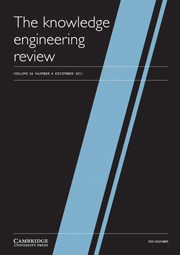The detailed ALA Program can be downloaded here
Accepted Papers:
Gracaliz Dimuro and Antonio Costa.
Regulation of Social Exchanges in Open MAS: the problem of reciprocal conversions between POMDPs and HMMs
Daniel Villatoro, Giulia Andrighetto, Jordi Brandts, Jordi Sabater Mir and Rosaria Conte.
Learning with more than rewards: The Implicit Signalling of Distributed Punishment
Abdel Rodriguez, Peter Vrancx, Ricardo Grau and Ann Nowe.
A Reinforcement Learning Approach to Coordinate Exploration with Limited Communication in Continuous Action Games
Monica Pinol, Angel Sappa, Angeles Lopez and Ricardo Toledo.
Feature Selection Based on Reinforcement Learning for Object Recognition
Lisa Torrey and Matthew Taylor.
Help an Agent Out: Student/Teacher Learning in Sequential Decision Tasks
Sam Devlin and Daniel Kudenko.
Plan-Based Reward Shaping for Multi-Agent Reinforcement Learning
Samuel Barrett, Peter Stone, Sarit Kraus and Avi Rosenfeld.
Learning Teammate Models for Ad Hoc Teamwork
Kyriakos Efthymiadis, Sam Devlin and Daniel Kudenko.
Overcoming Incorrect Knowledge in Plan-Based Reward Shaping
David Catteeuw and Bernard Manderick.
Emergence of Honest Signaling through Reinforcement Learning
Yujing Hu, Yang Gao, Ruili Wang, Zhaonan Sun and Xingguo Chen.
nMetaQ: An n-agent Reinforcement Learning Algorithm Based on Meta Equilibrium
Scott Proper and Kagan Tumer.
Coordination Graphs in Continuous Domains for Multiagent Reinforcement Learning
Chris Holmesparker and Kagan Tumer.
Combining Difference Rewards and Hierarchies for Scaling to Large Multiagent Systems
Kleanthis Malialis and Daniel Kudenko.
Reinforcement Learning of Throttling for DDoS Attack Response
Todd Hester and Peter Stone.
Intrinsically Motivated Model Learning for a Developing Curious Agent
Landon Kraemer and Bikramjit Banerjee.
Informed Initial Policies for Learning in Finite Horizon Dec-POMDPsInformed Initial Policies for Learning in Finite Horizon Dec-POMDPs
Mohamed Elidrisi, Nicholas Johnson and Maria Gini.
Fast Learning against Adaptive Adversarial Opponents
Eunkyung Kim, Yu-Han Chang, Rajiv Maheswaran, Yu Ning and Luyan Chi.
Adaptive Agents in Dynamic Games: Negotiating in Diverse Societies
Patrick Macalpine and Peter Stone.
Using Dynamic Rewards to Learn a Fully Holonomic Bipedal Walk
Matthew Adams, Robert Loftin, Matthew Taylor, Michael Littman and David Roberts.
An Empirical Analysis of RL's Drift From Its Behaviorism Roots
Carrie Rebhuhn and Kagan Tumer.
Fast Multiagent Learning from Actions Not Taken for Heterogeneous Agents
Atil Iscen and Kagan Tumer.
Multiagent Learning of choices via simpler MDPs and Reward Shaping



